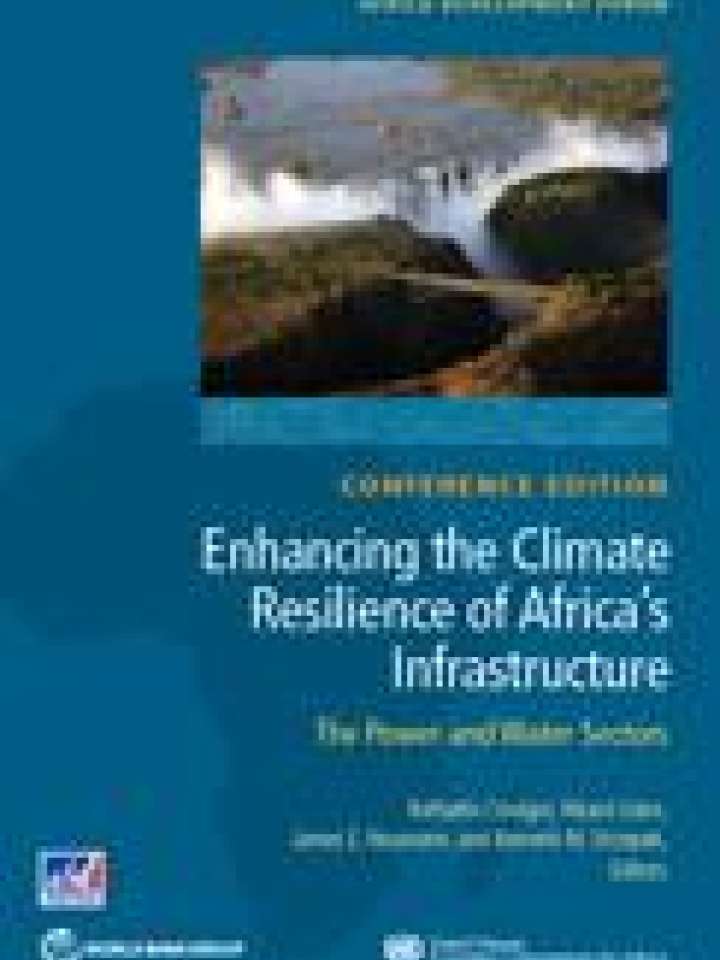Enhancing the climate resilience of Africa’s infrastructure: the power and water sectors
Conference edition
The report examines climate change impacts on hydropower, irrigation and electricity expansion in Africa and finds that the continent’s economic growth prospects can be improved by fully integrating future climate changes into infrastructure planning. The report shows how governments and regional organizations can work with climate scientists and design engineers in today’s uncertain climate future.
The study team used, for the first time, a single consistent methodology and a comprehensive, broad set of state-of-the-art climate projections, to examine impacts in Africa’s main river basins (Congo, Nile, Niger, Orange, Senegal, Volta and Zambezi) and across four electricity power pools (Western, Eastern, Central and the Southern Power Pool), to evaluate the economic impacts of an uncertain climate on hydropower and irrigation expansion plans when compared to a future with a constant climate. The team found that without fully integrating climate change considerations into plans, countries may face significant economic costs.
Incorporating climate resilience into regular planning and project design processes will require time and a change in thinking. The report recommends several areas of interventions, including:
- Develop technical guidelines on the integration of climate change in the planning and design of infrastructure in climate-sensitive sectors
- Promote an open-data knowledge repository for climate resilient infrastructure development
- Establish an Africa climate resilience project preparation facility to support the needs of different sectors
- Launch climate-resilient training programs for infrastructure professionals
- Set up an observatory on climate-resilient infrastructure development in Africa to link technical work with policy development
Explore further
